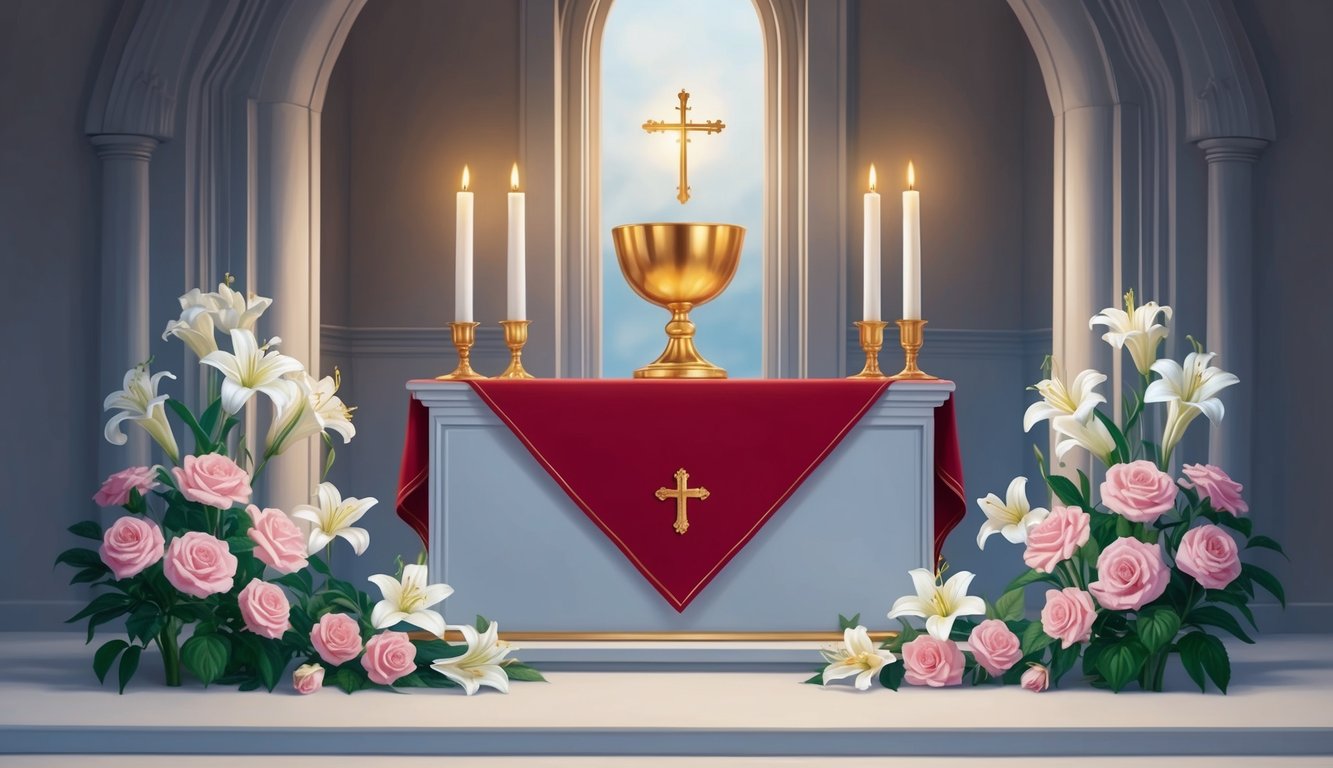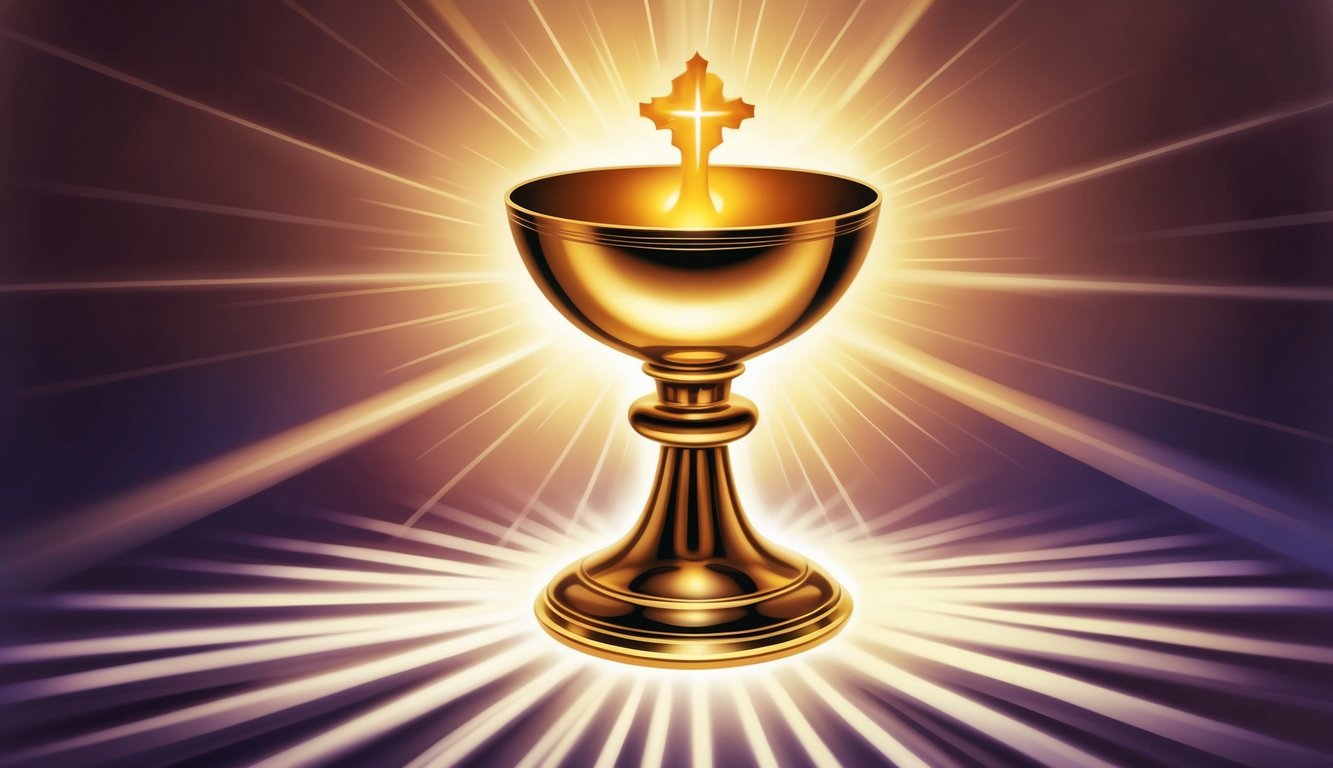Don’t Miss Out On This Unique Astrological Opportunity
Are you tired of spinning your wheels and getting nowhere? Simply put, you’re out of sync: you’re out of alignment with your astral configuration.
But: there’s a kind of map that can help you reclaim your alignment. Think of it as your own personal blueprint to success and happiness: a blueprint that will help you live your most amazing life.
Get started here.
The Novena to the Precious Blood of Jesus is a powerful prayer practice that many people find deeply meaningful.
This devotion focuses on the symbolic and theological significance of Jesus’s sacrifice.
These prayers help you connect with the divine mystery of Christ’s blood, which is believed to offer protection and spiritual renewal.
This novena is structured around specific prayers that are recited over a set number of days.
Each day brings a new reflection tied to the spiritual themes of sacrifice, redemption, and divine love.
Engaging in this practice provides a structured way to deepen your spiritual journey and explore your faith on a more personal level.
Beyond the nine days of prayer, you can continue to live out this devotion by integrating its messages into your everyday life.
This might involve moments of personal prayer, acts of service, or small daily reminders of the infinite value of Christ’s sacrifice.
Exploring these practices can strengthen your relationship with Jesus and remind you of the power found in His precious blood.
Key Takeaways
- The novena offers a spiritual connection to Jesus’s sacrifice.
- It includes structured prayers that span several days.
- Continual devotion can enhance your spiritual journey.
The Theology Behind the Precious Blood of Jesus

The theology of the Precious Blood of Jesus highlights its central role in Christian redemption, showcasing its biblical roots and symbolic representations.
This exploration underscores the concepts of grace and mercy bestowed upon humanity through the sacrificial act carried out by Our Lord Jesus Christ.
Biblical Foundations and Church Teachings
The theological significance of the Precious Blood of Jesus is anchored in Scripture and church doctrine.
In the Bible, passages such as those found in the Eucharistic narrative emphasize the importance of Christ’s blood as a new covenant.
Hebrews 9:22 mentions that without the shedding of blood, there is no forgiveness of sins.
Church teachings build on these foundations, reflecting on the blood of Christ as a symbol of sacrifice and cleansing.
The rituals and liturgies, such as the Eucharist, celebrate this belief, allowing you to partake in the mystery of Christ’s sacrifice.
The Precious Blood is therefore seen as a gateway to divine grace and an embodiment of redemption.
Symbols of the Precious Blood
The symbolism of the Precious Blood is vast and deep within Christian tradition.
One primary symbol is the cup, representing the sacrifice and covenant in the Communion.
This imagery is present in the Last Supper, where Jesus offers his blood as a pledge for salvation.
The act of receiving Jesus’s blood in the form of wine during Communion signifies the believer’s unity with Jesus and acknowledgment of his mercy.
Symbols like the cross and the lamb further underline themes of sacrifice and redemption.
Through these symbols, the faithful are reminded of Jesus’ ultimate sacrifice and the grace it imparts.
Significance of Redemption and Mercy
The Precious Blood holds profound meanings for redemption and mercy, emphasizing on Christ’s sacrificial love.
Redemption through his blood signifies the cleansing of sin, providing believers with a path to salvation.
Mercy is revealed through the forgiveness and grace extended to all who accept this divine gift.
In Christian belief, the blood of Christ is not only about atonement, but also about establishing a relationship of love and grace with God.
It demonstrates God’s willingness to forgive and embrace humanity back into His fold.
This belief in mercy reinforces your faith and encourages a life lived in alignment with Jesus’s teachings.
The Novena Prayers and Structure
The “Novena to the Precious Blood of Jesus” is a devotional practice that involves specific prayers and intentions over nine days.
Each day focuses on different themes, with key prayers like the Our Father and Hail Mary playing a central role.
The Holy Spirit and the Holy Mary also have significant roles in guiding and supporting those who participate.
Daily Themes and Intentions
Each day of the novena is centered around a particular theme or intention.
These themes often include courage, hope, and thanksgiving.
By focusing on these, you are encouraged to reflect deeply on aspects of faith and personal growth.
For example, the first day might focus on developing inner strength and courage to face life’s challenges.
As you progress, each theme builds upon the last, helping you grow spiritually and connect more intimately with the divine mysteries of the Precious Blood.
Key Prayers within the Novena
The prayers within the novena are an essential part of the practice.
Recitations often include the Our Father, Hail Mary, and Glory Be.
These prayers are repeated daily, creating a rhythm that enhances focus and devotion.
The repetition of these key prayers is designed to anchor each day’s intention in your heart.
With each recitation, you invite grace and blessings into your life.
Role of the Holy Spirit and the Holy Mary
In the novena, both the Holy Spirit and the Immaculate Mother, or Holy Mary, have significant roles.
You are invited to seek the guidance of the Holy Spirit for wisdom in everyday decisions and spiritual matters.
The Immaculate Mother serves as an intercessor, providing comfort and strength.
By invoking her help, you draw closer to her son, Jesus, and embrace the protective power of his Precious Blood.
This connection enriches your experience and deepens your faith.
Living the Devotion Beyond the Novena

Living the devotion to the Precious Blood of Jesus involves integrating prayer into your daily routine, performing acts of mercy, and recognizing the role of these practices within the Catholic Church.
This deeper connection can enrich your spiritual life and bring forth joy.
Incorporating the Devotion into Daily Life
Incorporating the devotion requires consistent effort and dedication.
One way to do this is through daily prayer.
Set aside a specific time each day to focus on prayer related to the Precious Blood of Jesus.
This not only strengthens your connection to the devotion but also brings peace and joy to your everyday life.
You might also choose to meditate on scripture passages that reflect on Jesus’ sacrifice.
Consider keeping a journal to record thoughts, prayers, and any graces you receive.
This practice helps you to remain mindful and grateful for these blessings.
Acts of Mercy and Thanksgiving
Acts of mercy are an essential aspect of living this devotion.
Consider volunteering in your community to help those in need.
This could be through volunteering at a local food bank or visiting the sick and elderly.
Demonstrating mercy through actions concretely expresses your devotion.
Thanksgiving is another important element.
Spend time in gratitude for the blessings and graces you receive.
You might write thank-you notes to individuals who have influenced your spiritual journey or create a gratitude list to review in your prayers.
Role of the Devotion in the Catholic Church
In the Catholic Church, the devotion to the Precious Blood plays an important role.
It is celebrated during Mass, particularly in the context of the Eucharist, where the wine symbolizes the blood of Christ.
Participating in Mass allows you to enter deeply into this sacred tradition.
The Church encourages followers to engage with this devotion to receive spiritual nourishment and strength.
Attending special services or novenas dedicated to the Precious Blood can deepen your spiritual life and connect you with others who share the devotion.
Frequently Asked Questions
The novena to the Precious Blood of Jesus is a powerful spiritual practice with specific prayers and intentions.
It holds historical significance and can be personalized outside its traditional timeframe.
Many believers find comfort and strength in this devotion, especially during times of personal struggles or spiritual warfare.
Just like the novena to the Sacred Heart, it allows individuals to deepen their faith and trust in God’s divine mercy.
Through consistent prayer and reflection, devotees can experience a renewed sense of grace and protection.
How do you pray the Chaplet of the Precious Blood?
To pray the Chaplet of the Precious Blood, you follow a series of prayers, usually involving Our Father, Hail Mary, and Glory Be sequences.
Beads similar to those of a rosary are typically used to keep track of prayers.
This chaplet focuses on meditations related to the Passion of Jesus.
What is the specific structure of the novena to the Precious Blood of Jesus?
The novena consists of nine consecutive days of prayer.
Each day has specific prayers, often starting with a sign of the cross, followed by prayers dedicated to the Precious Blood.
It usually concludes with a set of intentions or a closing prayer.
What are the intentions or benefits of praying the novena to the Precious Blood?
The intentions can include seeking protection, healing, or guidance.
Praying this novena is believed to bring spiritual renewal and a deeper connection to the sacrifice and love of Jesus.
Many people find peace and comfort in dedicating time to these prayers.
Where can I find the text for the novena to the Precious Blood of Jesus?
You can find the text in religious books or websites dedicated to Christian prayers.
Some resources provide comprehensive guides with additional meditations and reflections.
Libraries and church communities may also offer helpful materials.
Can the novena to the Precious Blood of Jesus be prayed outside of its traditional period?
Yes, while it is traditionally recited in July, you can pray this novena at any time during the year.
Many choose to pray it during times of personal need or spiritual quests, making it a versatile spiritual tool that can adapt to your life circumstances.
What are the origins and history of the Precious Blood novena?
The devotion to the Precious Blood has roots in early Christian traditions.
These traditions emphasize the Passion and sacrifices of Jesus.
Over time, this devotion evolved into specific prayers and novenas.
Various church leaders and communities across the world recognized and encouraged this devotion.



